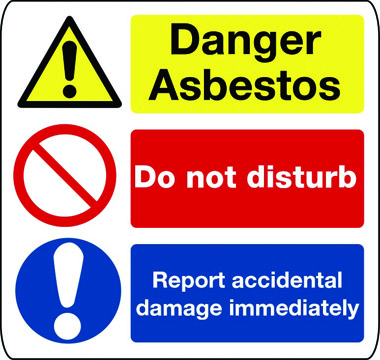Who does the control of asbestos regulations apply to?
Last Updated on 27 June 2023
Do the control of asbestos regulations apply to me?
The Control of Asbestos Regulations 2012 apply to different people at different times. So If you’re wondering ‘who does the control of asbestos regulations 2012 apply to?’ then this article should help you understand if and when it applies to you.
Regardless of the type of business or industry, the Control of Asbestos Regulations 2012 apply to all non-domestic establishments. This covers all commercial, industrial, and public structures, such as schools, hospitals, and offices, in addition to all retail establishments, and even domestic property.
Ultimately, the two principal types of person the control of asbestos regulations apply to are ‘Duty Holders’ and to ‘Employers’. These types of person often use others to carry out roles which meet their responsibilities. These can include safety officers, managers, maintenance staff, estate managers etc.
The obligation to control asbestos in non-domestic premises is mentioned in Regulation 4 of CAR 2012.
Any non-domestic building constructed before 1999 must have its asbestos identified, located, and managed by the person in charge of the building (the duty holder).
Identifying a ‘duty holder’ isn’t always straightforward. For example, within a school it could be the head teacher, the local authority or even the chair of governors.
In commercial properties, unless your contract or lease specifies otherwise, controlling asbestos may fall under your responsibility if you are a landlord, tenant, or managing agent of a commercial property. So if you have a lease or contract, check who is responsible for managing any asbestos.
If you are unsure whether or not you’re classed as the duty holder and if the regulations apply to you, then you should seek professional advice as the responsibility involves a number of duties which must be discharged to comply with current legislation – The Control of Asbestos Regulations 2012.
Requirements For Duty Holders Under CAR 2012
Requirements set out in the Control of Asbestos Regulations (CAR 2012) are generally accepted to apply to properties built before the year 2000. Asbestos was completely banned in the UK in Late 1999.
The management of asbestos applies to ‘none domestic property’ where some form of asbestos register or survey should be in place. Asbestos information will still also be required for domestic property when work is due to be carried out.
As a duty holder, the control of asbestos regulations will apply to you, and your responsibility is to ensure there is an up to date asbestos register within the premises. This should be available (within reason) to any person who works in the building or who arrives to conduct work in the building.
If a tradesmen enters a building where you have the responsibility and they expose themselves or others to asbestos, the responsibility for this exposure remains with the duty holder and/or possibly also the tradesmen’s employer.
In addition, anyone who has the responsibility of being the acting duty holder must also ensure asbestos is safely managed with a clearly defined asbestos management plan.
An Asbestos management plan should be updated following any material changes, and all asbestos containing materials should be reinspected at least annually.
Asbestos containing materials (ACM’s) can deteriorate or become damaged by contractors and maintenance staff if they are not correctly managed. We look after many client’s properties around the UK and provide this service.
Does the Control of Asbestos Regulations 2012 apply to Employers or Employees?
Employers have a duty to protect their employees from exposing themselves (and others through the course of their work) to asbestos and ensure they are appropriately trained to assist in this endeavour. This type of training is referred to as ‘Asbestos Awareness Training’.
So In simple terms, when an employee attends a property built before 2000, they should be in possession of, or be able to access, appropriate asbestos information relating to the site on which they plan to undertake work. This the same for both commercial and domestic property.
Any works to be carried out should be planned by their employer to ensure asbestos will not be disturbed, protecting the employee and others who may work in the building or on the site.
Unless no considerable amount of asbestos is likely to be deposited on an employee’s clothes while at work, every employer is required to provide adequate and acceptable protective clothing for any employee employed by that employer who is exposed to or is likely to be exposed to asbestos.
An asbestos survey will be required to check for the presence of asbestos
The employer should also ensure the appropriate type of asbestos survey is in place. This would be a ‘management asbestos survey’ for none invasive works or a ‘refurbishment/demolition asbestos survey’ when the fabric of the building is to be affected.
Its goal is to determine the existence and extent of any asbestos-containing materials (ACMs) in the structure that could be damaged or disturbed during routine use, maintenance, or new installations, as well as to evaluate its state. It might entail a little intrusive work and some disruption.
Absolutely no work should be undertaken on properties constructed pre the year 2000 without some form of asbestos register, survey or appropriate assessment.
Furthermore, In the majority of cases, this will need to be undertaken by an appropriately trained individual, usually an asbestos surveyor.
Employees must have the correct asbestos training
Any work on asbestos containing materials must only be conducted by a licensed HSE contractor or an appropriately trained individual.
Asbestos awareness training is the wrong type of training if you are required to undertake work on an asbestos containing material.
Anyone who may be exposed to asbestos fibres at work must complete mandatory training. This includes persons engaged in asbestos removal operations as well as maintenance staff and others who might come into contact with or disturb asbestos (such as cable installers).
Get in touch for advice on CAR 2012
If you are a duty holder (or unsure if you are the duty holder), an employer or an employee, then you are likely to fit into the picture in some way and the control of asbestos regulations will apply to you.
At RB Asbestos Consultants we have been helping with these compliance issues for more than thirty years. We know that the subject can be confusing and people may need our advice.
Hopefully this article will have answered your question regarding ‘who does the control of asbestos regulations apply to?’, but should you require any further clarification, then our advice is free and any of our team of surveyors and office staff will be happy to help you should you require professional advice.


